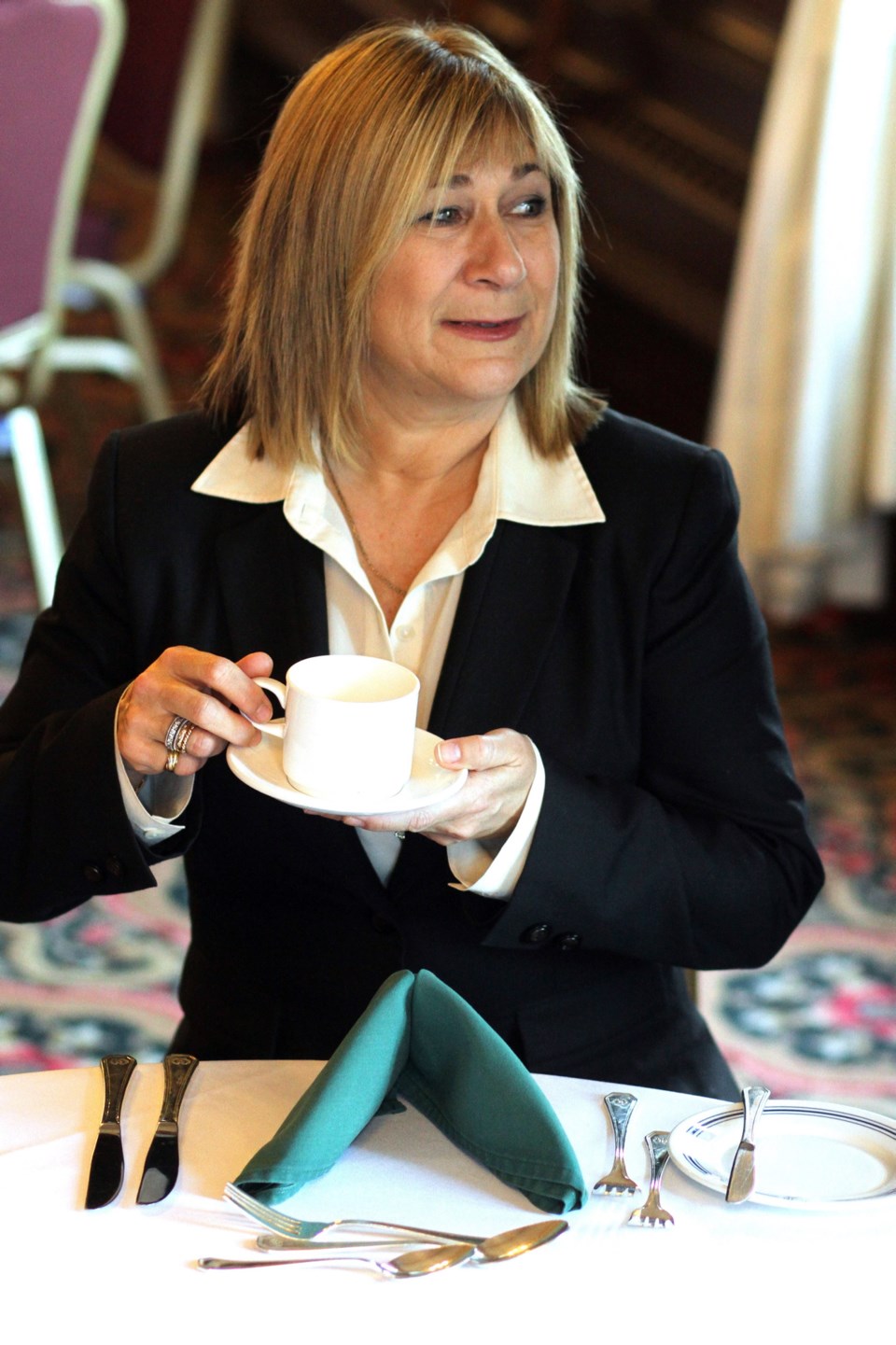Elizabeth Backman, a consultant in manners and etiquette, said a workplace Christmas party is a wonderful way to relax a little and get to know colleagues or supervisors on a different level.
But she said getting drunk, the most obvious social faux pas at the Christmas party, is really a result of forgetting the event is not one where you can let your hair down.
“It’s not your buddies, you are not kicking back and watching the game with a few beers,” she said. “And as a woman, you are not going to wear something down to here, showing lots of cleavage.
“It is still a business affair and you have to act it, you have to dress it and you have to watch what you are saying.”
The former Montreal resident, who has been in Victoria for about a year, has started a company to teach the ways and wherefores of social etiquette, starting with businesses.
And it’s not a determination to correct errors that is driving Backman.
Instead, it’s years of watching what she describes as the distressing collapse of good manners and common courtesy. During her years in Montreal in the fashion industry, manufacturing and retailing, she found everyday civility was kicked aside.
“Our standards are lower because we are not expecting the most of ourselves anymore,” she said.
For Backman, the product of an upbringing that included private girls’ schools, knowledge of details such as which fork to use, or saying “please” and “thank you” are taken for granted. But she has noticed for others it’s no longer the case.
For example, Backman was recently at a business luncheon where she was seated next to a person who nervously confessed to being at a loss over the silverware.
Backman said she made a joke, offering to eat with her fingers if it made the person feel better. Then she quietly said the person should start from the outside and work inward.
For people in business, this kind of knowledge is part of what she calls “the soft skills” of commerce. Just knowing and being comfortable with small niceties gives a polish and confidence to everything a person says and does.
“It’s getting that sales pitch across, or getting that final order, or getting to know that client a little better,” Backman said. “The last thing you want to worry about is, ‘;How do I pay for the bill?’ or ‘;How much should I tip?’
“You will have less to worry about,” she said. “It gives you self-confidence, it gives you self-esteem.”
Similarly, the soft skills of everyday etiquette can make a big difference within an office or business.
Backman said good manners can go a long way to replacing missing doors and walls in the modern, open-concept office where people work in cubicles. Doors may be gone, but nobody should barge in and interrupt someone when they’re working. They should begin with “Excuse me” and a request to talk.
“If it’s a good company, you will find people of a like mind and they will all treat each other with courtesy,” Backman said. The result will be a more comfortable, happier workplace but also a more productive workplace.
Sp far, Backman has been consulting people one on one, but she plans to begin a series of group workshops in the new year. She is also planning to start a series for children and young people.
These soft skills can be a huge boost when looking for jobs or launching new careers.
Ultimately, she believes young people, with their eager grasp of new technologies, might be in the most need of etiquette pointers. They spend so much time in front of screens, they are forgetting how to react toward others.
“Kids are ruder now,” Backman said.
“Sadly, as parents, too often we think the teachers are going to do the job,” she said. “But it’s not their job. Their job is to teach the curriculum. Really, it’s about self-respect, self-confidence and respect for other people.”
For more information, go to elizabethbackman.com.



